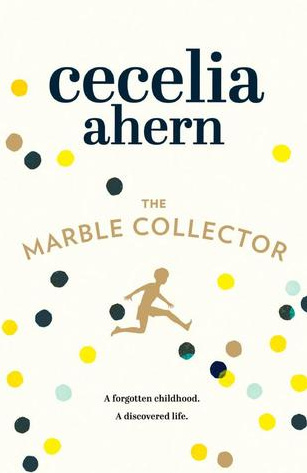

“When it comes to my memory there are three categories: things I want to forget, things I can't forget, and things I'd forgotten until I remember them.”
― Cecelia Ahern, quote from The Marble Collector
“People don't know that they do that to people when they do the things they shouldn't. Hurtful things are roots,they spread ,branch out, creep under the surface touching other parts of the lives of those they hurt. It's never one mistake, it's never one moment, it becomes a series of moments, each moment growing roots and spurting in different directions. And over time, they become muddled like an old twisted tree, strangling itself and tying itself up in knots.”
― Cecelia Ahern, quote from The Marble Collector
“When a member of the family leaves or dies, it changes the dynamics of a family. People move and shift, take up places they either wanted to have or are forced into roles they never wanted. It happens without anybody noticing, but it's shifting all the time.”
― Cecelia Ahern, quote from The Marble Collector
“My mother says that I have a knack for remembering what others forget. Sometimes it's a curse; nobody likes it when there's somebody to remember what they've tried so hard to bury.”
― Cecelia Ahern, quote from The Marble Collector
“Sometimes I have to remind myself to breathe. You would think it would be an innate human instinct but no, i inhale and forget to exhale and so I find my body rigid, all tensed up, heart pounding , chest tight with an anxious head wondering what's wrong.”
― Cecelia Ahern, quote from The Marble Collector

“Some things are better left the way they are”
― Cecelia Ahern, quote from The Marble Collector
“In this place, fun and laughing makes them angry. We are not here to be leaders, we are here to serve.”
― Cecelia Ahern, quote from The Marble Collector
“When a member of the family leaves or dies, it changes the dynamics of a family. People move and shift, take up places they either wanted to have or are forced into roles they never wanted. It happens without anybody noticing, but it’s shifting all the time.”
― Cecelia Ahern, quote from The Marble Collector
“Perhaps this general degradation was the result of too much crowding, too little privacy, too much noise. You couldn't be decent if you weren't intelligent; you couldn't be intelligent if you couldn't think—and who could think in all this racket? Add the stench to the confusion of cramped quarters, and who could be self-respecting?”
― Lloyd C. Douglas, quote from The Robe
“Somhow those Ten Men -- at the time they were called Recruiters, of course -- discovered that Constance had been at the library. Most likely one of their informants saw her come out, because it was on that very day that the brutes showed up and threatened the librarians. Who told them nothing, incidentally.'
'The same thing happened in Holland,' Kate reflected. 'You'd think these guys would learn their lesson -- librarians know how to keep quiet.'
'It helps to ask politely,' said Mr. Benedict”
― Trenton Lee Stewart, quote from The Mysterious Benedict Society and the Prisoner's Dilemma
“இனியபுனல் அருவிதவழ் இன்பமலைச் சாரலிலே
கனிகுலவும் மரநிழலில்
கரம்பிடித்து உகந்ததெல்லாம் கனவுதானோடி - சகியே நினைவு தானோடி..!
புன்னைமரச் சோலையிலே பொன்னொளிரும் மாலையிலே என்னைவரச்சொல்லி அவர்
கன்னல்மொழி பகர்ந்ததெல்லாம் சொப்பனந்தானோடி - அந்த அற்புதம் பொய்யோடி..!
கட்டுகாவல் தான்கடந்து கள்ளரைப்போல் மட்டில்லாத
காதலுடன் கட்டி முத்தம்
ஈந்ததெல்லாம் நிகழ்ந்ததுண்டோடி நாங்கள் மகிழ்ந்ததுண்டோடி..!”
― Kalki, quote from பொன்னியின் செல்வன் [Ponniyin Selvan]
“And then I thought: Bring it on. There’s no place like anywhere but here.”
― Danielle Paige, quote from Dorothy Must Die
“Because God and the devil could be one and the same thing, and everybody understood it in his own way.”
― Arturo Pérez-Reverte, quote from The Club Dumas
BookQuoters is a community of passionate readers who enjoy sharing the most meaningful, memorable and interesting quotes from great books. As the world communicates more and more via texts, memes and sound bytes, short but profound quotes from books have become more relevant and important. For some of us a quote becomes a mantra, a goal or a philosophy by which we live. For all of us, quotes are a great way to remember a book and to carry with us the author’s best ideas.
We thoughtfully gather quotes from our favorite books, both classic and current, and choose the ones that are most thought-provoking. Each quote represents a book that is interesting, well written and has potential to enhance the reader’s life. We also accept submissions from our visitors and will select the quotes we feel are most appealing to the BookQuoters community.
Founded in 2023, BookQuoters has quickly become a large and vibrant community of people who share an affinity for books. Books are seen by some as a throwback to a previous world; conversely, gleaning the main ideas of a book via a quote or a quick summary is typical of the Information Age but is a habit disdained by some diehard readers. We feel that we have the best of both worlds at BookQuoters; we read books cover-to-cover but offer you some of the highlights. We hope you’ll join us.